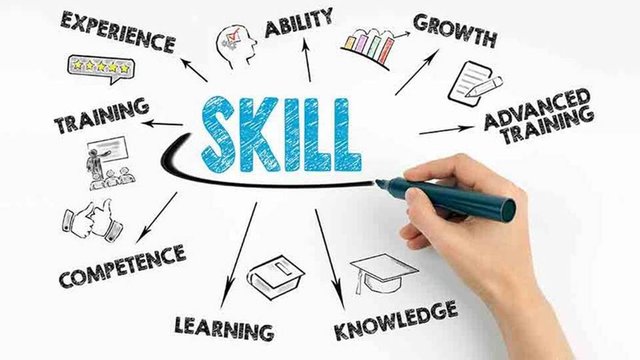Professional development is the process of acquiring new knowledge and skills necessary to enhance one's career. Professional development can be defined as a set of activities and practices directed toward attaining a higher level of competence and professional standards. It usually involves formal education, assessment, and training focused on practical application.
Professional development is the learning to acquire or hold various professional credentials including academic degrees, formal courses, taking up formal courses in seminars, and more informal learning opportunities located in the workplace. It has often been described as intensive and comprehensive, ideally including an evaluative process. In professional development, people are encouraged to think critically and creatively, and to use their imagination, resources, and experiences to develop their fields and careers. A career development plan for a particular individual should take into account his personal interests, skills, vocation, work experience, values, personality, and other relevant factors.
Some of the important activities associated with professional development include reflective learning, which refers to analyzing current professional and occupational issues, gaining new knowledge and skills, and applying learning theories and concepts to the occupation. Another area of learning is that of leadership, which generally involves training in various skills such as getting along with others, dealing with subordinates and managing projects. Problem-solving, which encourages problem solving techniques, and creative thinking are also important in this profession. Career counselors help individuals in choosing the most appropriate career for them, and also offer further information on career development, preparing clients for their chosen careers, and related subjects.
Professional development workshops also offer useful opportunities for teachers and educators to learn new teaching techniques and strategies. Teachers learn new teaching methods through professional development workshops. Teachers can gain insights into effective lesson management through these workshops. They are also able to connect better with their students. These professional development workshops for teachers provide valuable tips for effective classroom management and also teach how to conduct effective classroom discussions.
Teachers and educators can also benefit from continuing education for professional development. Continuing education provides continuous training and update on current practice that teachers can apply to their own lives and their work. A continuing education program may consist of one or more intensive classroom lectures, one or more visits to the educational office, or participation in an outside study abroad program. The number of days you take up any continuing education program will depend on the type of program and the provider. It is important to note that some states require professional development as part of the license for teachers; however, professional development does not need to be part of your license.
Professional development for teachers can lead to improved job satisfaction, improved classroom behavior, increased knowledge and skills, and a longer and healthier career. As you can see, professional development can have a huge positive impact on the lives of today's professionals. Learning new techniques, practices, strategies, and tools, as well as learning about current professional practices can help teachers become more effective, better educated, and happier in their jobs. Professional development gives today's teachers an edge on the field. In addition, continuing professional development helps professionals maintain their licenses and keep them up to date on the current laws and changes to their profession.

